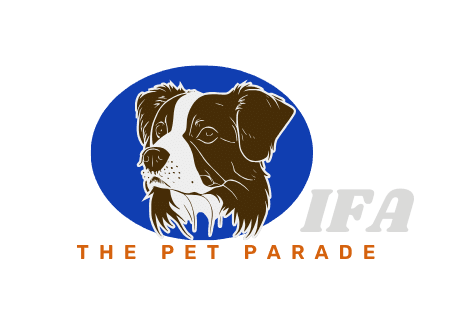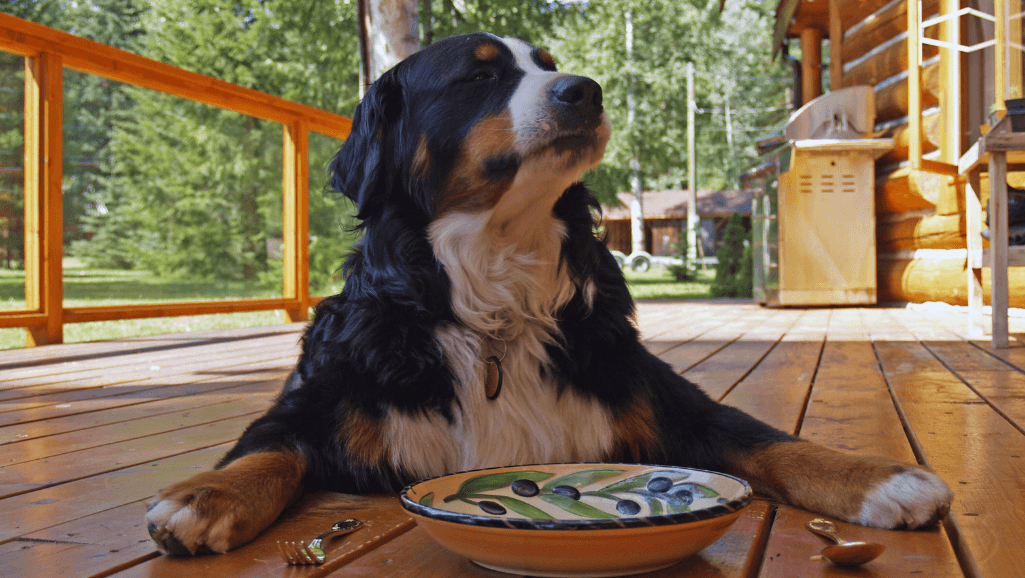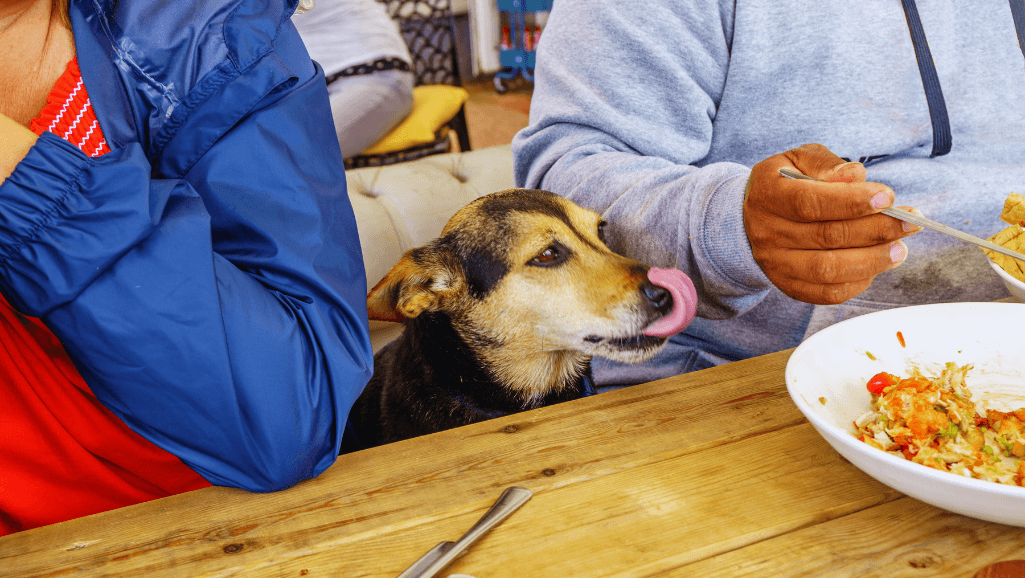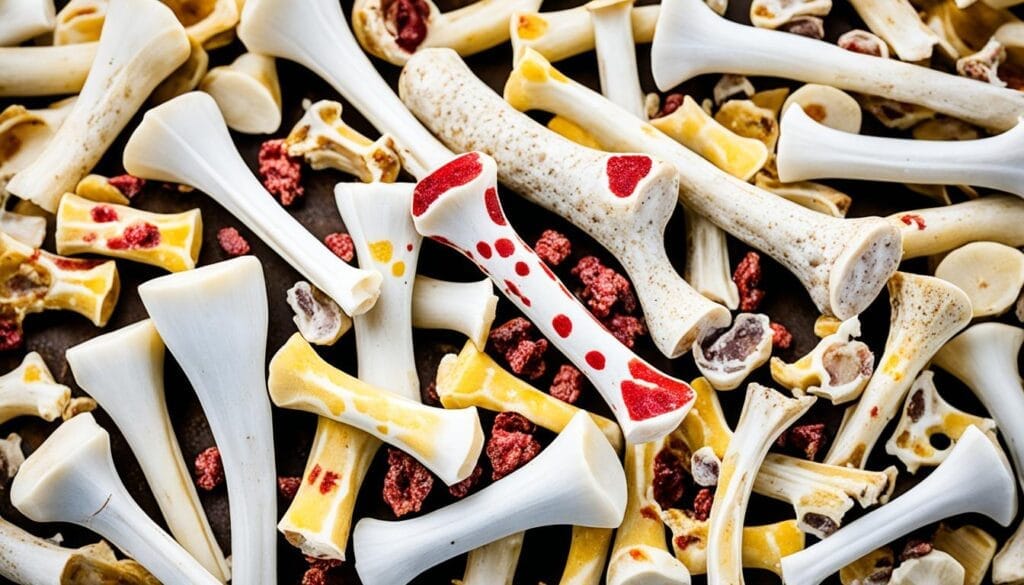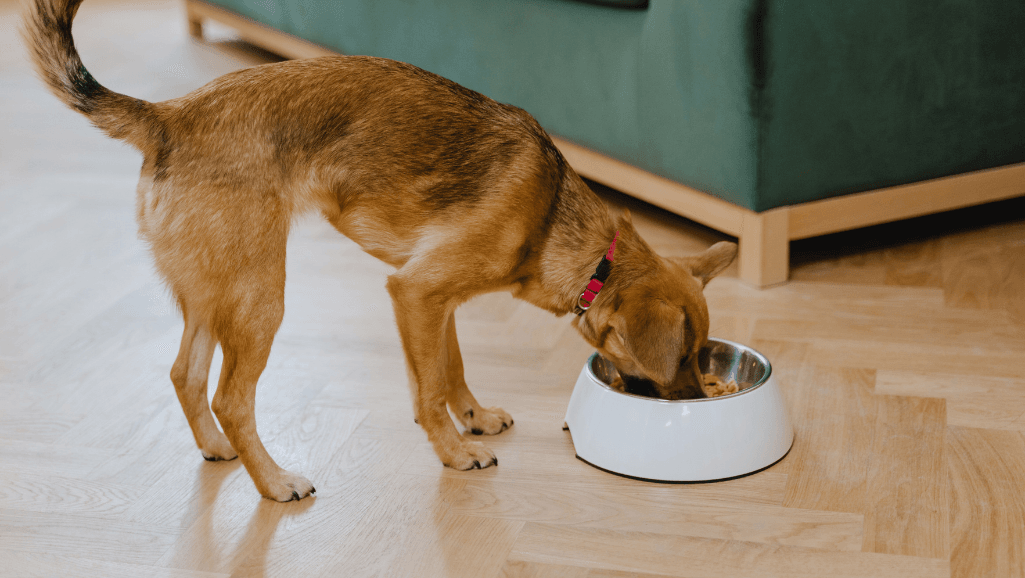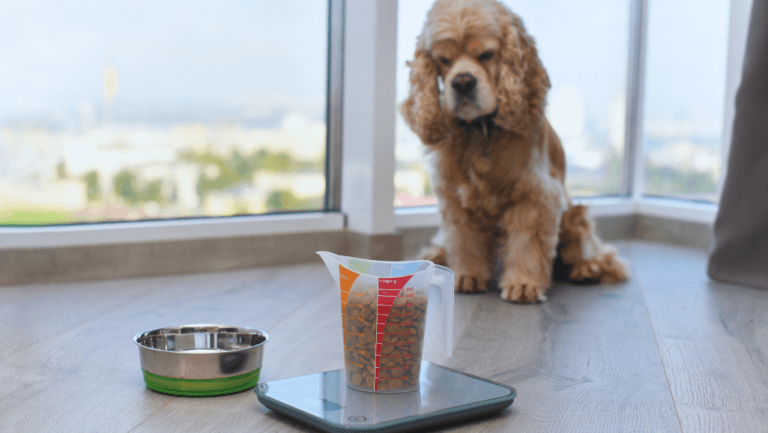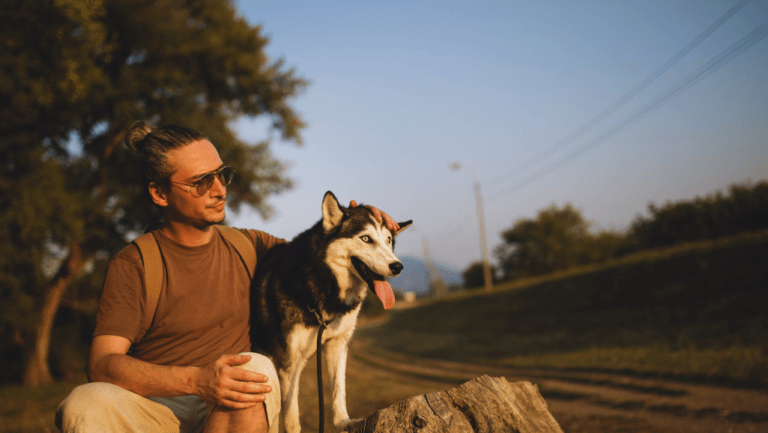The tradition of turkey at Thanksgiving is well-known in the United States. It often means there are a lot of leftovers to share with your pets. Turkey is safe for dogs. It is high in protein and has nutrients like riboflavin and phosphorus. But how you feed it to dogs is very important.
Thanksgiving turkey is usually cooked with butter, oils, and spices. This can cause health problems like stomach issues and pancreatitis in dogs. It’s best to feed dogs plain, cooked turkey. Make sure to take off the skin and fats, and do not add onions or garlic. Also, don’t give them cooked turkey bones. These bones can break easily and cause harm. Feeding your dog turkey safely means working with a vet. This is especially true if you’re making the food at home. If you’d rather not give your dog any turkey, there are plenty of toys and treats you can use. These fun items let pets join the celebrations without any risks.
Key Takeaways
- Can Dogs Eat Turkey.
- Cooked poultry bones can cause severe injuries and should never be given to dogs.
- Turkey skin and seasonings can lead to pancreatitis in dogs.
- Always remove bones from turkey before feeding it to your dog.
- Consult a veterinarian when adding turkey to your dog’s diet.
- Use turkey-themed toys and treats as safe alternatives during celebrations.
Is Turkey Safe for Dogs?
During Thanksgiving, families enjoy big turkey dinners. This might make pet owners wonder if dogs can have turkey. Turkey is rich in protein and important nutrients that many dog foods contain. But, it’s crucial to serve turkey safely to pets. Now, we’ll explore both the good and the bad of giving turkey to dogs.
Benefits of Turkey for Dogs
Turkey can add nutrition to a dog’s meal if prepared right. It offers a lean protein source. Plus, it has vital vitamins and minerals. These help with a dog’s muscle growth and keep their metabolism healthy. So, when given in the right amount, turkey is good for dogs.
Risks of Feeding Turkey to Dogs
Yet, there are dangers too, especially in how the turkey is prepared. Foods like onions and garlic, often found in turkey seasoning, can be harmful. They might cause stomach problems or pancreatitis in dogs. The fat in turkey skin might also lead to health issues. Cooked turkey bones are risky because they can break and hurt a dog’s mouth or cause blockages.
To cut these risks, don’t give dogs turkey with bones, skin, or certain seasonings. A small amount of plain, fully cooked turkey from time to time is okay. But, it should only be a small part of their diet. The main part of their food should be balanced dog food. Too many table scraps can lead to various health problems. Always talk to a vet before changing what you feed your dog, including adding turkey.
How to Prepare Turkey for Your Dog
Preparing turkey for dogs safely means following important steps. It’s key to check the turkey for any harmful parts. Also, make sure it’s cooked right to be a healthy treat for your pet.
Removing Skin and Fat
Before you serve turkey to your dog, take off the skin and fats. They’re too fatty and might make your dog sick. Use plain, skinless turkey to avoid these problems. This way, your dog gets a healthy protein.
Fully Cooking the Turkey
Cook the turkey well and without any spices. Things like garlic and onions, as well as salt and extra fats, can hurt dogs. Roast or bake the turkey with no oils or butter. These are not good for dogs.
Learn more about cooking turkey for dogs
to make sure it’s safe.
Picking Out Bones
You must ensure there are no bones in the turkey. Cooked bones can break and hurt your dog inside. They can even cause blockages. Be careful even with raw bones because they may make your dog choke. Always be sure the meat has no bones before you feed it to your dog.
| Preparation Step | Importance | Details |
|---|---|---|
| Removing Skin and Fat | High | Prevents digestive issues and pancreatitis |
| Fully Cooking | High | Avoids harmful seasonings and ensures meat safety |
| Picking Out Bones | Critical | Prevents choking and internal injuries from splintered bones |
By sticking to these steps, turkey can be a safe food for dogs. Make sure to remove the skin and fat, cook the turkey well without adding seasonings, and check for bones. This way, you can add healthy protein to your dog’s food. This meat will bring your dog good nutrients.
Can Dogs Eat Turkey on Thanksgiving?
Thanksgiving is a big deal in the United States, with turkey at the heart of many meals. Great care must be taken if you’re thinking about sharing Thanksgiving leftovers for dogs. Plain turkey is okay for dogs, but make sure it has no extra fats or harmful ingredients like onions and garlic.
Turkey is a safe option for dogs, packed with protein, riboflavin, and phosphorous. It’s already in a lot of dog foods. Just make sure to avoid risky additions.
- Remove the skin and fat from the turkey meat.
- Ensure the turkey is fully cooked without any harmful seasonings.
- Feed small portions to avoid overindulgence.
- Avoid giving your dog cooked poultry bones to prevent injuries or choking hazards.
Don’t give dogs cooked turkey bones. They can splinter, causing serious injuries. Stick to boneless, skinless turkey for safety.
Thinking about sharing turkey with your dog? Talk to a vet first, especially if your dog gets an upset tummy from turkey.
By choosing the right ingredients and cooking methods, dogs can enjoy a bit of turkey safely. This makes Thanksgiving fun and safe for everyone.
Nutrition Differences: Dark vs. White Turkey Meat
Turkey is a common choice for a dog’s meals because it’s packed with goodness. But choosing between dark or white turkey meat is key for your dog’s well-being.
Dark Meat
Dark meat, like from turkey legs and thighs, has more fat and calories. This can lead to obesity and pancreatitis if your dog eats it regularly. Despite its yummy taste, it’s important to limit how much dark meat your dog gets.
White Meat
White meat, often from the turkey breast, is a leaner option. It has more protein and less fat. This makes it a better, occasional snack for dogs. Remember, take off the skin which is high in fat and calories to keep it healthy.
No matter if you choose dark or white, always remove the skin. Talk to your vet about how much to feed your dog. The right amount is based on your dog’s size and health. This way, turkey meat can be a good part of your dog’s diet.
Hazards of Feeding Turkey with Additives
Feeding your dog turkey might sound fun, but it can be risky, especially if the turkey contains additives. It’s important to know the dangers. These include the risks of eating turkey with too much seasoning and spices, or the problems from turkey bones and skin.
Seasonings and Spices
Turkey with seasonings and spices is not safe for dogs, especially garlic and onion. These can be very harmful. Even ingredients like salt and butter can upset their stomach. Smoking the turkey can make the sodium levels too high, which is dangerous.
Bones and Skin
Turkey bones and skin are also risky for dogs. Bones can break into sharp pieces that might cause choking or harm their insides. The fat in the skin can cause obesity and digestive troubles. So, it’s best to feed dogs turkey without the skin and bones.
| Hazard | Effect |
|---|---|
| Garlic | Toxicity |
| Onion | Toxicity |
| Salt | Digestive Issues |
| Butter | Digestive Issues |
| Turkey Bones | Choking, Internal Injuries |
| Turkey Skin | Obesity, Digestive Issues |
Can dogs eat turkey?
Yes, dogs can eat turkey, but with caution. For it to be healthy, the turkey must be prepared simply. This means no added salt or other seasonings. Turkey is packed with nutrients like riboflavin and phosphorous, which are good for dogs.
Thanksgiving often has lots of turkey leftovers. It might be tempting to share these with your dog. However, make sure the turkey is plain. This avoids seasoning that could be harmful, like onions. And never feed your dog any cooked bones to prevent accidents and choking risks.
It’s best to limit table scraps, even if it’s turkey, to avoid obesity issues. Always check with a vet before making any big changes to your dog’s diet. This is especially true for dogs with existing health concerns.
Raw meaty bones are okay for dogs but could pose a bacterial contamination risk. Remember, treats should only make up 10% of your dog’s daily food. The bulk of their meals should be from a well-balanced diet. While turkey allergies in dogs are rare, they can happen.
Dogs of different sizes have different feeding needs. For instance, small dogs can handle 1-2 small turkey pieces. On the other hand, extra-large dogs can eat several pieces. Just make sure the turkey is plain, boneless, and fully cooked.
| Dog Size | Recommended Turkey Serving | Feeding Precautions |
|---|---|---|
| Small Dogs (21-30 lbs) | 1-2 small pieces | Avoid bones, skin, and seasonings |
| Extra-Large Dogs (91+ lbs) | Handful of pieces | Ensure turkey is plain and fully cooked |
Alternatives to Feeding Your Dog Turkey
Not keen on sharing turkey with your dog because of possible health issues? There are plenty of safe alternatives. You can still bring the holiday cheer to your furry friend without worrying. Special turkey-themed toys, treats, or dog foods are great. They’re made to keep your dog happy and healthy.
Turkey Toys and Treats
If you’re avoiding turkey meat, try out turkey-themed toys. They’re fun and safe. You can choose from toys that dispense treats or turkey tendon chews. These will keep your dog entertained and their teeth in good shape during the celebrations. So, your dog can enjoy the holiday without eating risky foods.
Special Dog Foods with Turkey
Many dog foods have turkey in them and are made for safety. They offer all the turkey benefits without health risks. This way, your dog gets to savor the taste of turkey. Plus, they keep eating a balanced, safe diet.
| Dog Size | Recommended Turkey Intake |
|---|---|
| Small dog (21-30 lbs.) | 1-2 pieces of turkey |
| Extra-large dog (91+ lbs.) | handful of turkey pieces |
Remember, only 10% of your dog’s food should be treats. The rest should be quality dog food. By choosing safe alternatives, you keep the holidays fun and safe for your dog. Learn more about safe food for dogs here.
Signs of a Turkey Allergy in Dogs
It is rare, but dogs can be allergic to turkey with regular contact. Signs like an upset stomach, vomiting, or diarrhea could show up. They might also start itching a lot.
If you think your dog is allergic to turkey, talk to a vet. A vet can figure out what foods are safe for your dog. They’ll help you keep an eye on signs of an allergy and suggest what to do next. This is crucial for your pet’s health because turkey allergies are like others, needing close watch and quick vet attention.
For dogs with a turkey allergy, look for other proteins. Even if turkey helps dogs who can’t eat chicken, new allergies can still happen. Always let your vet pick new foods to avoid health issues. And don’t forget, feeding too much can cause problems like gas.
- Gastrointestinal symptoms: Vomiting and diarrhea.
- Skin issues: Itching and rashes.
- Consultation: Always see a vet if a turkey allergy is suspected.
- Alternative proteins can be considered to manage allergies.
- Avoid excessive feeding to prevent health problems like flatulence.
Be careful with raw turkey because of germs. Always handle it safely. On the other hand, turkey necks can be good for dogs. They help clean teeth and add important nutrients to their diet.
Conclusion
In conclusion, dogs can eat turkey, but it needs to be done right. You should only give them plain, fully cooked turkey. Make sure to remove the skin, bones, and any harmful toppings like garlic or onions. This way, your dog can enjoy turkey safely without any health problems.
Turkey brings great nutrition to dogs. It has lots of protein, plus important vitamins and minerals. But remember, turkey should only be a small part of your dog’s meals, about 10%. How much they need depends on their size, age, and how active they are.
Be careful with processed turkey foods, such as turkey bacon or luncheon meats. These have more fat and calories than regular turkey. When adding turkey to your dog’s diet, move slowly and watch for how they react. It’s smart to talk to a vet before changing what your dog eats. This keeps pets happy and healthy during holidays and all year round. Now, you can safely enjoy Thanksgiving with your dog by your side.
